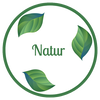|
You've probably heard all the negative publicity around parabens and the like, and you may have been wondering whether preservatives are all bad. In this article, I'm going to break down what preservatives are, why we need them and which ones to look out for. What are preservatives? Preservatives are chemical compounds used to prevent microorganisms from multiplying within your cosmetics. The air is full of tiny little nasties, and our skin is actually covered in a whole ecosystem of bacteria, so any time you open the bottle or jar, any time you touch a product, you introduce microorganisms. The preservative ensures that these unwelcome visitors don't set up shop and start breeding. The microorganisms in question could be bacteria, moulds, fungi, yeasts and so on, so there are many different kinds of preservatives that have different strengths and weaknesses. Do cosmetics really need preservatives? That depends on the type of cosmetic! Except perhaps for the occasional extremophile, microorganisms can't survive without water, so if a cosmetic product does not contain any water, it won't be susceptible to this kind of contamination. On the other hand, if the customer is likely to put their wet hands into the product, then water (and consequently microorganisms) are going to introduced. That's why I've included a mild preservative into my cleansing balms, for example. The important thing to remember is that water breeds microorganisms, so as soon as a product involves water, either because it contains water as a ingredient or ingredients that themselves have a water content (e.g. aloe vera juice, hydrosols, glycerin extracts), or the product is likely to be used in a wet environment, then it MUST contain a preservative in order to remain safe. Please don't be tempted to follow DIY recipes on the internet that do not follow this rule. Not all countries require stringent safety testing for cosmetics, so unfortunately there are also huge numbers of unsafe products out there for sale, but don't be fooled into thinking that preservatives don't matter. An unpreserved product which contains water may look perfectly fine, but the thing about microorganisms is they are, by definition, microscopic, so you can't rely on your eyes to spot a contaminated product. Insufficiently preserved cosmetics have been reported to cause blindness, illness and even death, so should be avoided at all costs! But don't preservatives trigger allergies? Not necessarily! A lot of people, myself included, do get a reaction to a number of synthetic preservatives, but that doesn't mean all preservatives are bad. Remember what I said above about there being lots of different types of preservatives? The most important distinction from my point of view as a natural formulator is between natural and synthetic. Most mainstream cosmetics use entirely synthetic preservatives; that is to say ones artificially created in a laboratory. They tend to be very powerful chemicals, capable of killing a wide range of bacteria, moulds, yeast and fungi, so they make reliably safe products with long shelf lives. Unfortunately, their strength is also their weakness. As a very powerful substance, they can trigger an over-sensitive immune system and cause an allergic response. They can also be damaging to the skin microbiome over time, because not all the microorganisms on our skin are bad. By killing off everything living there, we can actually hinder our skin's natural defences against the harmful ones. So what's a better solution? Well, plants have been fighting off harmful microorganisms for billions of years and the truth is that they're rather better at it than us. In fact, some plant compounds can be quite discerning, killing off harmful invaders but not the microorganisms that are peacefully coexisting with us. And because plant-based preservatives are milder and take a less sledgehammer approach, they are less likely to trigger allergies. Note that anyone may be allergic to anything, but plant-based preservatives are less likely to cause problems than synthetic alternatives. So why doesn't everyone use natural preservatives? Like everything else, it boils down to money. Plant-based preservatives tend to be manufactured on a smaller scale and need more work to produce, so they are more expensive than synthetic preservatives. They are also harder to work with, as they need very specific conditions, such as a certain pH, in order to work correctly. Since different ingredients can interact in different ways and thus change how the preservatives function, each product needs careful experimentation to find the right combination of preservatives if you're relying on plant-based only. Personally, I think it's well worth putting in the extra effort. I'll be sharing more about the individual plant-based preservatives that I've chosen for my products in future blog posts. You can also read more about phenoxyethanol, one preservative that has recently attracted some bad publicity, in this article.
0 Comments
Leave a Reply. |
KateThoughts, musings, and ruminations on skincare and related topics. Categories
All
Archives
March 2024
|





 RSS Feed
RSS Feed
